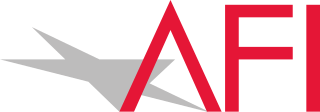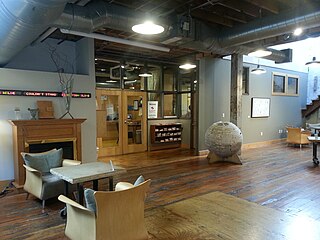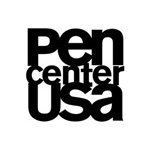
The American Film Institute (AFI) is an American nonprofit film organization that educates filmmakers and honors the heritage of the motion picture arts in the United States. AFI is supported by private funding and public membership fees.
In the United States, federal grants are economic aid issued by the United States government out of the general federal revenue. A federal grant is an award of financial assistance from a federal agency to a recipient to carry out a public purpose of support or stimulation authorized by a law of the United States.
The American Institute of Biological Sciences (AIBS) is a nonprofit scientific public charitable organization. The organization's mission is to promote the use of science to inform decision-making and advance biology for the benefit of science and society.

Coro is an American non-partisan, non-profit organization best known for its fellowship program dedicated to teaching skills useful in leadership in public affairs to young adults.

Self-Help Graphics & Art, Inc. is a community arts center in East Los Angeles, California, United States. The building is a mix Beaux-Arts and vernacular architecture built in 1927, and was designed by Postle & Postle. Formed during the cultural renaissance that accompanied the Chicano Movement, or Self Help, as it is sometimes called, was one of the primary centers that incubated the nascent Chicano art movement, and remains important in the Chicano art movement, as well as in the greater Los Angeles community, today. SHG also hosts musical and other performances, and organizes Los Angeles's annual Day of the Dead festivities. Throughout its history, the organization has worked with well-known artists in the Los Angeles area such as Los Four and the East Los Streetscapers, but it has focused primarily on training and giving exposure to young and new artists, many of whom have gone on to national and international prominence.
The Woman's Building was a non-profit arts and education center located in Los Angeles, California. The Woman's Building focused on feminist art and served as a venue for the women's movement and was spearheaded by artist Judy Chicago, graphic designer Sheila Levrant de Bretteville and art historian Arlene Raven. The center was open from 1973 until 1991. During its existence, the Los Angeles Times called the Woman's Building a "feminist mecca."

Visual Communications –– is a community-based non-profit media arts organization based in Los Angeles. It was founded in 1970 by independent filmmakers Robert Nakamura, Alan Ohashi, Eddie Wong, and Duane Kubo, who were students of EthnoCommunications, an alternative film school at University of California, Los Angeles. The mission of VC is to "promote intercultural understanding through the creation, presentation, preservation and support of media works by and about Asian Pacific Americans."
International Documentary Association (IDA), founded in 1982, is a non-profit 501(c)(3) that promotes nonfiction filmmakers, and is dedicated to increasing public awareness for the documentary genre. Their major program areas are: Advocacy, Filmmaker Services, Education, and Public Programs and Events.
Virtual volunteering refers to volunteer activities completed, in whole or in part, using the Internet and a home, school buildings, telecenter, or work computer or other Internet-connected device, such as a smartphone or a tablet. Virtual volunteering is also known as online volunteering, remote volunteering or e-volunteering. Contributing to free and open source software projects or editing Wikipedia are examples of virtual volunteering.
Grant writing is the practice of completing an application process for a financial grant, which are often provided by governments, corporations, foundations, and trusts. The skill of grant writing is known as grantsmanship.

Chicago ORT Technical Institute, located in Skokie, Illinois, was part of a 130-year-old, worldwide network of more than 800 non-profit vocational training schools.

The Loft Literary Center is a non-profit literary organization located in Minneapolis, Minnesota incorporated in 1975. The Loft is a large and comprehensive independent literary center and offers a variety of writing classes, conferences, grants, readings, writers' studios and other services to both established and emerging writers.
The Office of Social Innovation and Civic Participation was an office new to the Obama Administration, created within the White House, to catalyze new and innovative ways of encouraging government to do business differently. Its first director was the economist Sonal Shah. The final director was David Wilkinson.

The California Association of Student Councils (CASC) is a non-profit, student-led youth leadership and advocacy organization. Founded in 1947 by the California Department of Education and the Association of California School Administrators, CASC has provided a multitude of conferences to students, advisors, and professionals in both California and around the world.

PEN Center USA was a branch of PEN, an international literary and human rights organization. It was one of two PEN International Centers in the United States, the other being the PEN America in New York City. On March 1, 2018, PEN Center USA unified under the PEN America umbrella as the PEN America Los Angeles office. PEN Center USA was founded in 1943 and incorporated as a nonprofit association in 1981. Much of PEN Center USA's programming continues out of the PEN America Los Angeles office, including the Emerging Voices Fellowship, PEN In the Community writing residencies and guest speaker program, and the PEN Presents conversation series.
Grant management software is a program or application that helps non-profits administer the grant process. Some software is designed to help foundations to organize, prioritize, and process the grant applications they receive from charities, as well as simplify oversight of the grants they make. Other software is designed to be used by grantseekers to help them organize and write their grant applications. Both types of software, as well as combined solutions serving both sets of users, are available as self-hosted programs or web-based cloud applications.

The David Bohnett Foundation is a private foundation that gives grants to organizations that focus on its core giving areas – primarily Los Angeles area programs and LGBT rights in the United States, as well as leadership initiatives and voter education, gun violence prevention, and animal language research. It was founded by David Bohnett in 1999. As of 2022, the foundation has donated $125 million to nonprofit organizations and initiatives.
The Studio Watts Workshop was an arts organization founded in 1964 and based in the Watts neighborhood of Los Angeles, dedicated to providing working space for artists and offering a broad range of arts workshops for the local community.
CETA Employment of Artists(1974–1981) refers to the Comprehensive Employment and Training Act (CETA), which federally employed more than 10,000 artists – visual, performing, and literary – during a span of eight years. This was the largest number of artists supported by Federal funding since the Works Progress Administration (WPA) of the 1930s. It is estimated that an additional 10,000 arts support staff were funded as well. During its peak year, 1980, CETA funding for arts employment funneled up to $300 million into the cultural sector – and the economy – of the United States. In comparison, the National Endowment for the Arts budget that year was $159 million.
Norton J. Kiritz was an American educator and founder of the Grantsmanship Center.









